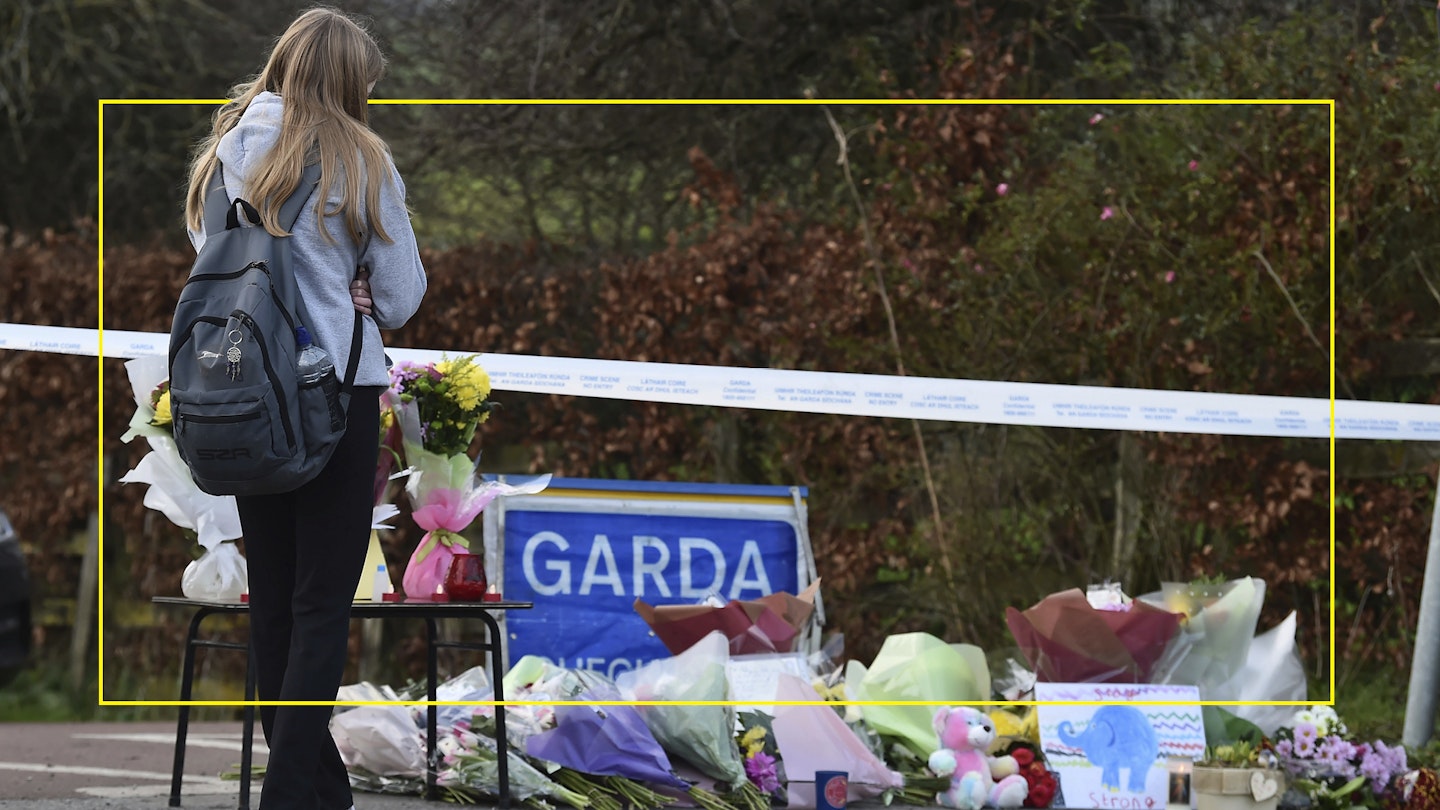The violent death of teacher Ashling Murphy in Ireland has left women – once more – calling for change, writes Claire Cohen.
It was supposed to be a watershed moment. At least, that’s what headlines and politicians claimed after the murder of Sarah Everard last March. It was the horrific crime that would finally see violence against women taken seriously. The question on the lips of many over the past two weeks has been: how many such moments do we need?
On 12 January, 23-year-old teacher Ashling Murphy was found dead on a canal bank, near Tullamore in Ireland. She was, as the sickeningly familiar hashtag now goes, just out for a run when she was brutally attacked. Police have since charged a man in his thirties on suspicion of murder.
Here we are again: reading about the unimaginable death of a young woman. Looking at images from candlelit vigils as thousands gathered in Dublin, Belfast, Cork, London, Edinburgh and beyond. Reeling at the words of her grief-stricken parents. ‘She was just a special girl… a little angel,’ her father Raymond told the press. At Ashling’s funeral, the former director of Women’s Aid Ireland, Margaret Martin, said to the crowd, ‘Perhaps this death will be a watershed moment.’
Will it? Right now, it feels the same – a reactivation of the pain and anger of last March. Of September, when 28-year-old Sabina Nessa was killed near her home. Of June 2020, when sisters Nicole Smallman and Bibaa Henry were stabbed to death. Little wonder women are starting to wonder where we are safe. Not walking home, not running, not in pairs, not in the park.
Six months after Sarah’s murder, a Grazia survey found that 48% of women felt less safe when out alone. The lack of action since then has done nothing to reassure us that the burden of safety isn’t still on us.
Just four days before Ashling’s death, the UK Government backed a new app, which tracks a woman’s movements and alerts her ‘guardians’ if she deviates from her route. No doubt there will now be more chatter about CCTV, street lighting, rape alarms. Earlier this month, the House of Lords voted to make misogyny a hate crime in the new Policing Bill. The next day, Justice Secretary Dominic Raab vowed to reverse it, as it would be ‘counter productive’ for women. Public sexual harassment is still not a criminal offence. The Government’s ‘tackling violence against women and girls’ strategy has had its launch delayed. This is why none of the senseless deaths of women has been a ‘watershed moment’.
Laura Bates, founder of Everyday Sexism, is clear we need to see action from those with the power to make change – ‘I don’t believe in “watershed” moments. Too many have come and gone and nothing seems to change. It is a myth that we are waiting for a case so awful that it shocks us into action. What we are waiting for is political will to embrace change. In policing, in education, in our justice system.’
So how can we stop feeling powerless? Activist Gina Martin says, ‘Throughout history, we’ve been the ones who’ve pushed this fight forward. Find your confidence and voice by reading, learning, unpicking your experiences and listening to all women and survivors. Whether you help your brother understand gender inequality a little better, or dive into volunteering… your efforts will make a difference. We just don’t stop.’
